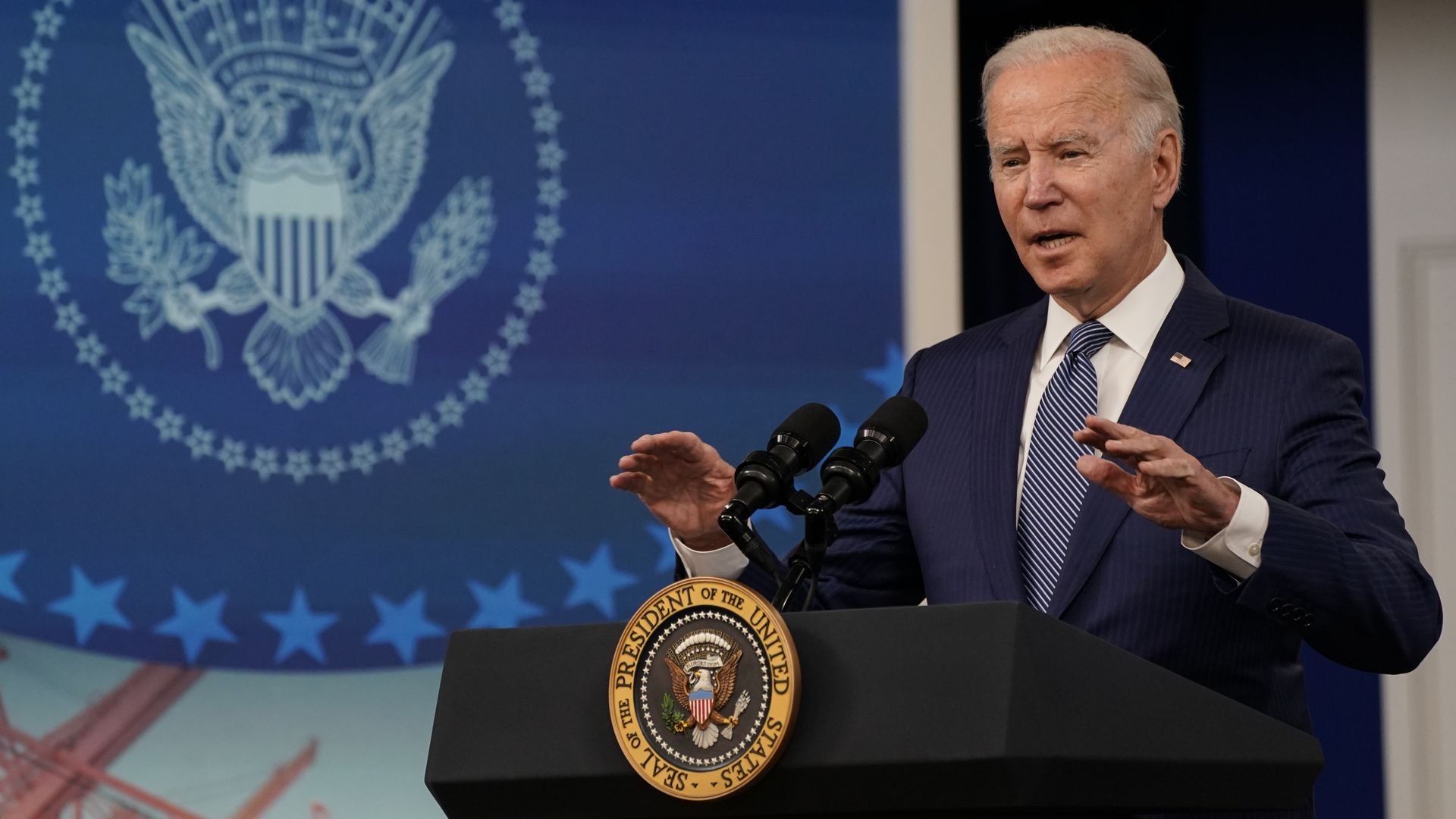Biden's Cabbage Patch offensive
Add Axios as your preferred source to
see more of our stories on Google.

President Biden speaks about the nation's supply-chain issues. Photo: Ting Shen/Bloomberg via Getty Images
In the final weeks of the 2021 holiday shopping season, President Biden has mounted a Cabbage Patch offensive — trying to diminish Americans' anxiety about pandemic shortages and price spikes by recalling past runs on toys.
Driving the news: "There are items every year that sell out, that are hard to find," he said Wednesday at the White House.
- "Some of you moms and dads may remember Cabbage Patch Kids back in the '80s or Beanie Babies in the '90s, or other toys that have run out at Christmas time in past years when there was no supply chain problem," the president said.
Why it matters: Biden is testing more plainspoken and aggressive language to defend his administration's economic and coronavirus policies as he gets battered in the polls and urged by congressional Democrats to do more to change the narrative.
- The cost and availability of everything from food to toys, appliances, cars and houses have been impacted.
- Biden highlighted his efforts to lower gas prices and noted inflation in places like the United Kingdom, Germany and Canada as "a natural byproduct of a world economy shut down by the pandemic." As the virus is controlled and normalcy returns, he predicted, "more price pressures will ease."
- He also said engagement with CEOs, labor officials and ports are making a difference: "We’re heading into a holiday season in very strong shape. And it’s not because of luck. We averted potential crisis by figuring out what needed to get fixed and then we brought people together to do the hard work of fixing it."
- His holiday gift references were the most kitchen-table of arguments.
Between the lines: They were overshadowed by a moment in the Q&A at the end of the event in which Biden was asked a question about whether Donald Trump put him at risk for COVID-19. But these weren't throwaway lines.
- White House press secretary Jen Psaki said Friday during her daily media briefing that "as much as we’re seeing encouraging economic data, data doesn’t move people; I can tell you that as a communicator."
- What moves people is "their experiences in their daily lives," she said. "So, he’s going to be out there talking about how his plans will lower their costs, make their lives better and, hopefully, that will give people a bridge to what he’s trying to achieve here."
One big question: How many Americans under 50 who hear a Cabbage Patch reference will have any sense of the adrenaline and panic that marked holiday shopping in 1983?
